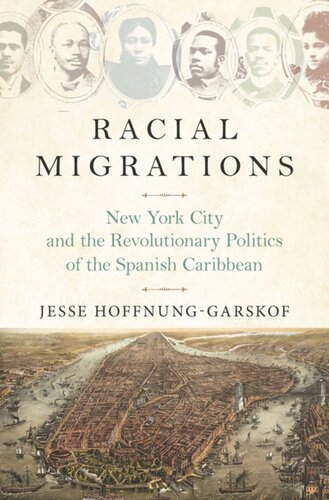

Most ebook files are in PDF format, so you can easily read them using various software such as Foxit Reader or directly on the Google Chrome browser.
Some ebook files are released by publishers in other formats such as .awz, .mobi, .epub, .fb2, etc. You may need to install specific software to read these formats on mobile/PC, such as Calibre.
Please read the tutorial at this link: https://ebookbell.com/faq
We offer FREE conversion to the popular formats you request; however, this may take some time. Therefore, right after payment, please email us, and we will try to provide the service as quickly as possible.
For some exceptional file formats or broken links (if any), please refrain from opening any disputes. Instead, email us first, and we will try to assist within a maximum of 6 hours.
EbookBell Team

5.0
38 reviewsThis book tells the story of a remarkable group of Afro-Caribbean immigrants in New York City in the late nineteenth century who played a crucial role in the Cuban and Puerto Rican independence struggles.
The gripping history of Afro-Latino migrants who conspired to overthrow a colonial monarchy, end slavery, and secure full citizenship in their homelands
In the late nineteenth century, a small group of Cubans and Puerto Ricans of African descent settled in the segregated tenements of New York City. At an immigrant educational society in Greenwich Village, these early Afro-Latino New Yorkers taught themselves to be poets, journalists, and revolutionaries. At the same time, these individuals—including Rafael Serra, a cigar maker, writer, and politician; Sotero Figueroa, a typesetter, editor, and publisher; and Gertrudis Heredia, one of the first women of African descent to study midwifery at the University of Havana—built a political network and articulated an ideal of revolutionary nationalism centered on the projects of racial and social justice. These efforts were critical to the poet and diplomat José Martí’s writings about race and his bid for leadership among Cuban exiles, and to the later struggle to create space for black political participation in the Cuban Republic.
In Racial Migrations, Jesse Hoffnung-Garskof presents a vivid portrait of these largely forgotten migrant revolutionaries, weaving together their experiences of migrating while black, their relationships with African American civil rights leaders, and their evolving participation in nationalist political movements. By placing Afro-Latino New Yorkers at the center of the story, Hoffnung-Garskof offers a new interpretation of the revolutionary politics of the Spanish Caribbean, including the idea that Cuba could become a nation without racial divisions.
A model of transnational and comparative research, Racial Migrations reveals the complexities of race-making within migrant communities and the power of small groups of immigrants to transform their home societies.